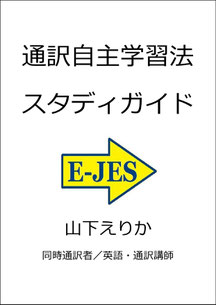
こんにちは、日英同時通訳者でオンライン英語・通訳講師の山下えりかです。
機械翻訳の技術は日々進化しています。そして今AIの進化により、これまでとは比較できないスピードで精度を上げています。
とは言え未だに、「機械翻訳は人間なら絶対にしないミスをする」「AI翻訳がどんなに良くなっても、人間の言葉を100%正確に訳すのは無理」と言ったコメントをよく目にします。
実際のところはどうなのでしょうか。この記事では私がAI翻訳(主に日本語から英語)について考えていることを共有したいと思います。
おすすめ:「日本語で英語を書く」機械翻訳英訳講座
✔ AI翻訳の強み
まずはAI翻訳の強みを考えてみましょう。AI翻訳の強みは何と言ってもそのスピードと蓄積している情報量の多さです。
AI翻訳は数万語をほんの数秒で別言語に変換できます。また使える単語の数やデータとして蓄えている知識の量も桁違いです。
これらの点においては人間がどれだけ頑張ってもAI翻訳には勝てません。
✔ 人間の強み
その一方で人間には人間の強みがあります。それは例えば言葉のニュアンスの理解であったり、言葉や表現に含まれる「言語化されていない内容」を読み取る力などです。
これは確かにAIにはまだ難しく、AI翻訳が人間に及ばない部分であると言えます。しかし、これが正当な「AI翻訳が使えない理由」かと問われると、私はそうは思いません。
✔ AI翻訳は人間なら絶対にしないミスをする
AI翻訳について多く目にするコメントが、「AI翻訳は人間なら絶対にしないミスをする」です。この「人間なら絶対にしないミス」とはつまり、先ほど挙げたニュアンスや言語化されていない内容の読み取りができないという意味です。
これは当然のことです。AI翻訳についてこれを欠陥として挙げるのはナンセンスです。なぜならAI翻訳は人間ではないのですから。
そして私はこの点をAI翻訳の欠陥として咎めるのではなく、「人間が補強すべき点」と考えています。「AIが人間の言葉を読み取れない」と考えるのではなく、「AIが読み取れる言葉を人間が使えていない」と考えるべきです。
つまりAI翻訳の精度を上げられるかどうかは、原文の精度や原文を書く人間の文章力にかかっていると言えるのです。
✔ AI翻訳が人間の言葉を100%正確に訳すのは無理
「AI翻訳がどんなに良くなっても、人間の言葉を100%正確に訳すのは無理」これもよく見るコメントです。
私たち人間は、同じ言語を使う人間同士であっても理解不足や解釈の違いから相手の言ったことを100%正しく理解できないということがあります。人間が同じ言語でもできないことをAIにしてほしいなんて、それこそAIに多くを求めすぎています。
私はこれも使う人間側の問題だと捉えています。つまり自分の書いたことや言ったことが正しく訳されているかどうか、また自分の意図通りの文章になっているかどうかは、やはり最後は自分で確認して判断すべきなのです。
✔ AI翻訳を良きパートナーとするために身につけるべきスキル
それではAI翻訳を自分の良きパートナーとするために、私たち人間が身につけるべきスキルとはどのようなものなのか考えてみましょう。私が考えるそれらのスキルは、以下の2つです。
1.AIが正確に理解できる文章を書くスキル
2.AI翻訳の訳文をチェックできるだけの英語力
✔ AI翻訳が正確に理解できる文章を書くスキル
私たちの母語である日本語は特に、主語がなくても通じたり、積極的に行間を読むことがコミュニケーションのベースとなっているなど、曖昧さが特徴の言語です。AIにその曖昧な言葉を理解して欲しいと思うのは間違いです。AI翻訳を使うのなら、元の文章からその曖昧さを徹底的に排除する必要があります。
また元の文章を書くのに使用する言語は日本語であっても、英語を意識した論理を用いて文章を構成することで、よりAIが英語にしやすい状態を作ることができます。
AI翻訳に正確な訳をしてもらうために大切なのは、「論理的で曖昧さのない文章を書く力」なのです。
✔ AI翻訳の訳文をチェックできるだけの英語の知識
先ほども書いた通り、自分の書いたことや言ったことが正しく訳されているかどうか、また自分の意図通りの文章になっているかどうかは、最終的には自分で確認して判断すべきです。
使われている単語や表現は適格か、文法は正しいか、自分が伝えたかったことが伝わる文章になっているかなどを正確に判断するためには、それを評価できるだけの英語力を身につけている必要があります。
AI翻訳に関しては「AI翻訳があれば英語の勉強いらないでしょ」という意見もあるようですが、AI翻訳を正しく使うためにこそ、英語を学ぶことは必要です。
✔ おわりに
「これだけ技術が進歩してもAI翻訳は期待するレベルに達していない」は人間の怠慢です。技術はこれだけ進歩しているのですからそれをいかに使うかを考え、それに必要な努力をすべきだと私は考えています。
最後にこの記事をAI翻訳サービスのDeepLで翻訳した英文を載せておきます。確かに100%ではないかもしれませんが、このままここに載せても問題ないレベルの英文になっています。そしてこの翻訳にかかった時間はわずか5秒です。
この素晴らしく便利な技術を最大限利用できるようになるため、日本語の勉強、英語の勉強、始めてみませんか?
【追記】
「機械翻訳に適した日本語の書き方を学びたい」というリクエストをいただき、機械翻訳で正確な英訳をするための日本語の書き方が学べるオンライン講座を開講しました。こちらもぜひご活用ください。
※訳文には一切の手を加えていません。DeepL翻訳の訳文をそのままコピペしました。
Japanese writing style and skills needed to master AI translation
Hello, I am Erika Yamashita, a Japanese-English simultaneous interpreter and online English/interpreting teacher.
The technology of machine translation is evolving day by day. And now, with the evolution of AI, the accuracy is improving at a speed that cannot be compared to the past.
However, I still often see comments such as "machine translation makes mistakes that humans would never make" or "no matter how good AI translation gets, it is impossible to translate human words 100% accurately.
What is the actual situation? In this article, I would like to share my thoughts on AI translation (mainly from Japanese to English).
✔ Strengths of AI Translation
First, let's consider the strengths of AI translation: its speed and the amount of information it stores.
AI Translation can translate tens of thousands of words into another language in just a few seconds. The number of words that can be used and the amount of knowledge stored in the data are also far greater.
No matter how hard humans try, they cannot beat AI translation in these respects.
✔ Human Strengths
On the other hand, humans have their own strengths. For example, the ability to understand the nuance of words and to read the "non-verbal content" contained in words and expressions.
This is certainly still difficult for AI, and it can be said that this is one area where AI translation is not as good as human translation. However, if you ask me if this is a legitimate "reason why AI translation is useless", I do not think so.
✔ AI translation makes mistakes that humans would never make.
One of the most common comments I see about AI translation is that "AI translators make mistakes that humans would never make. By "mistakes that humans would never make," I mean the inability to read the nuances and non-verbalized content I mentioned earlier.
This is a given, and it is nonsense to cite it as a flaw in AI translation, because AI translation is not human.
And I do not condemn this as a flaw of AI translation, but rather as something that should be reinforced by humans. Instead of thinking that "AI cannot read human words," we should think that "humans cannot use words that AI can read."
In other words, the accuracy of AI translation depends on the accuracy of the source text and the writing ability of the human who writes the source text.
✔ It is impossible for AI translation to translate human words 100% accurately.
No matter how good AI translation gets, it is impossible for it to translate human words 100% accurately.
Even among human beings who speak the same language, we may not understand 100% of what the other person says correctly due to lack of understanding or differences in interpretation. Asking AI to do what humans cannot do even in the same language is asking too much of it.
I see this as another problem on the human side. In other words, you should check and judge for yourself whether what you wrote or said is translated correctly and whether it is what you intended.
✔ Skills to acquire to make AI translation a good partner
Now let us consider what skills we humans should acquire to make AI translation a good partner for ourselves. In my opinion, these skills are the following two.
1. the skill to write sentences that AI can understand accurately
2. English language skills to check the translation of AI translation
✔ Skills to write sentences that AI translation can understand accurately
Japanese, our mother tongue, is a language characterized by ambiguity, especially in the way it can be understood without a subject, and in the way active reading between the lines is the basis of communication. If you want to use AI translation, you need to thoroughly eliminate the ambiguity from the original text.
Even if the language used to write the original text is Japanese, you can make it easier for AI to translate it into English by structuring the text using English-oriented logic.
The ability to write logical and unambiguous sentences is the key to having AI Translation provide accurate translations.
✔ Knowledge of English enough to check the AI translation
As mentioned earlier, you should ultimately check and judge for yourself whether what you wrote or said has been translated correctly and whether the sentence is as you intended.
In order to accurately judge whether the words and expressions used are qualified, whether the grammar is correct, and whether the sentence conveys what you wanted to say, you need to have enough English ability to evaluate it.
Some people may say, "You don't need to study English if you have AI Translation," but it is necessary to learn English in order to use AI Translation correctly.
✔ Conclusion
It is human negligence to say, "Even though the technology has advanced so much, AI translation has not reached the level we expect. I believe that since technology has advanced so much, we should think about how to use it and make the necessary effort to do so.
Finally, I have included an English translation of this article by the AI translation service DeepL. It may not be 100% accurate, but it is good enough to be included here. And it took only 5 seconds to translate it.
Why don't you start studying Japanese and English so that you can take full advantage of this wonderful and useful technology?
The translation has not been modified in any way. DeepL translation has been copied and pasted as-is.
